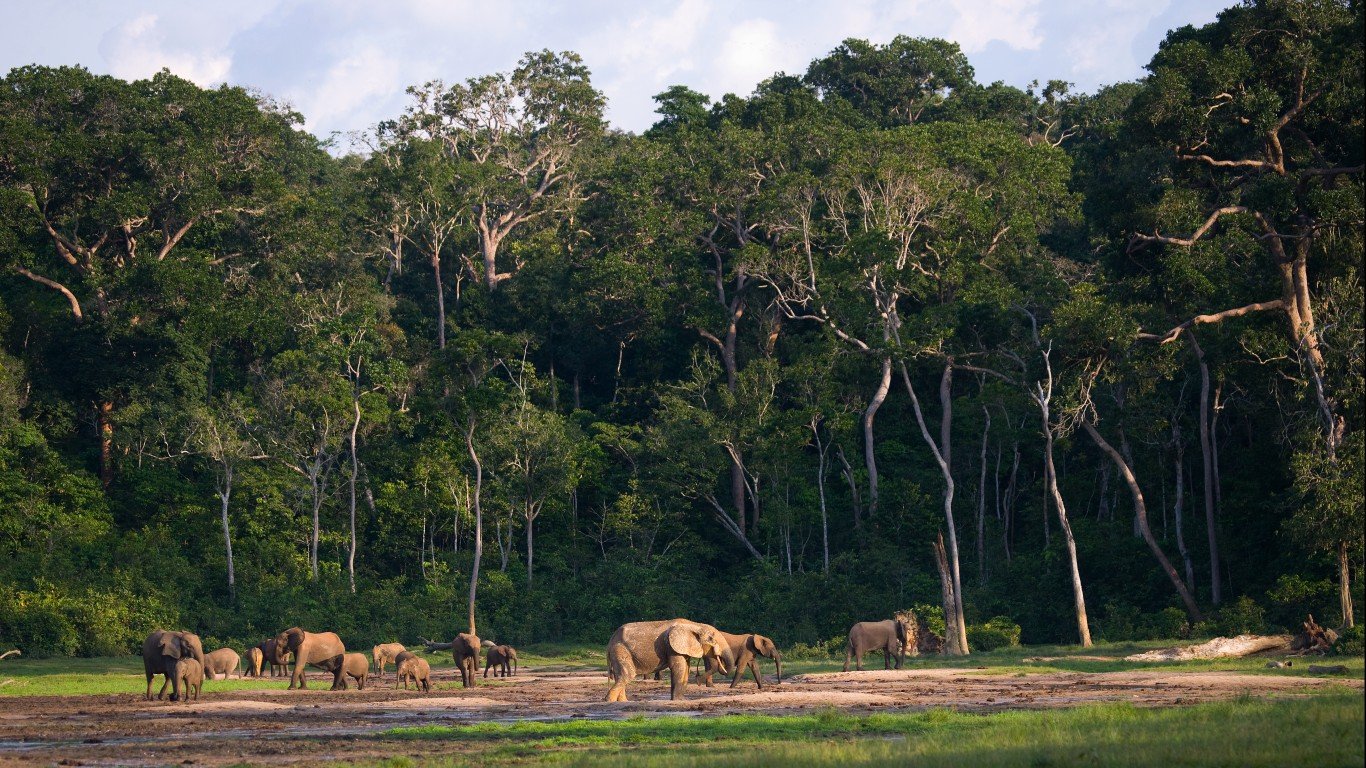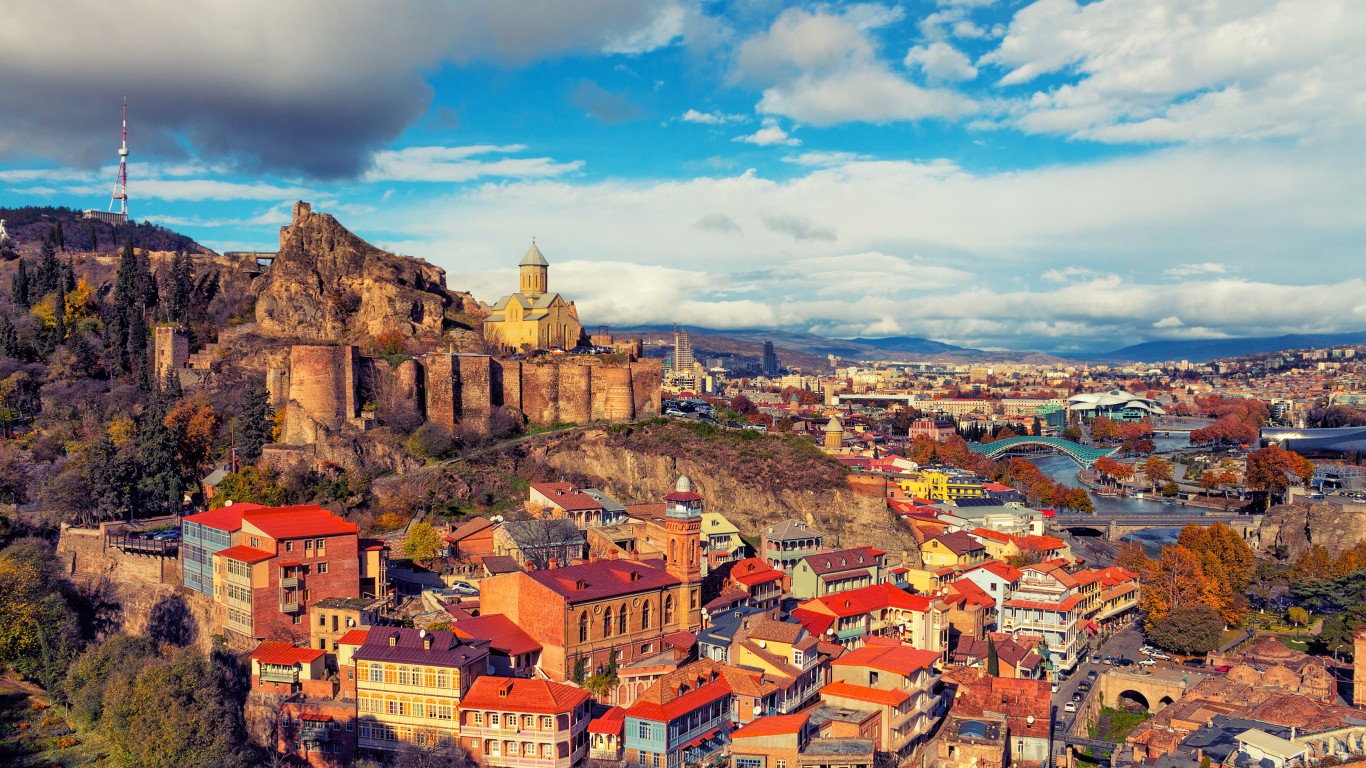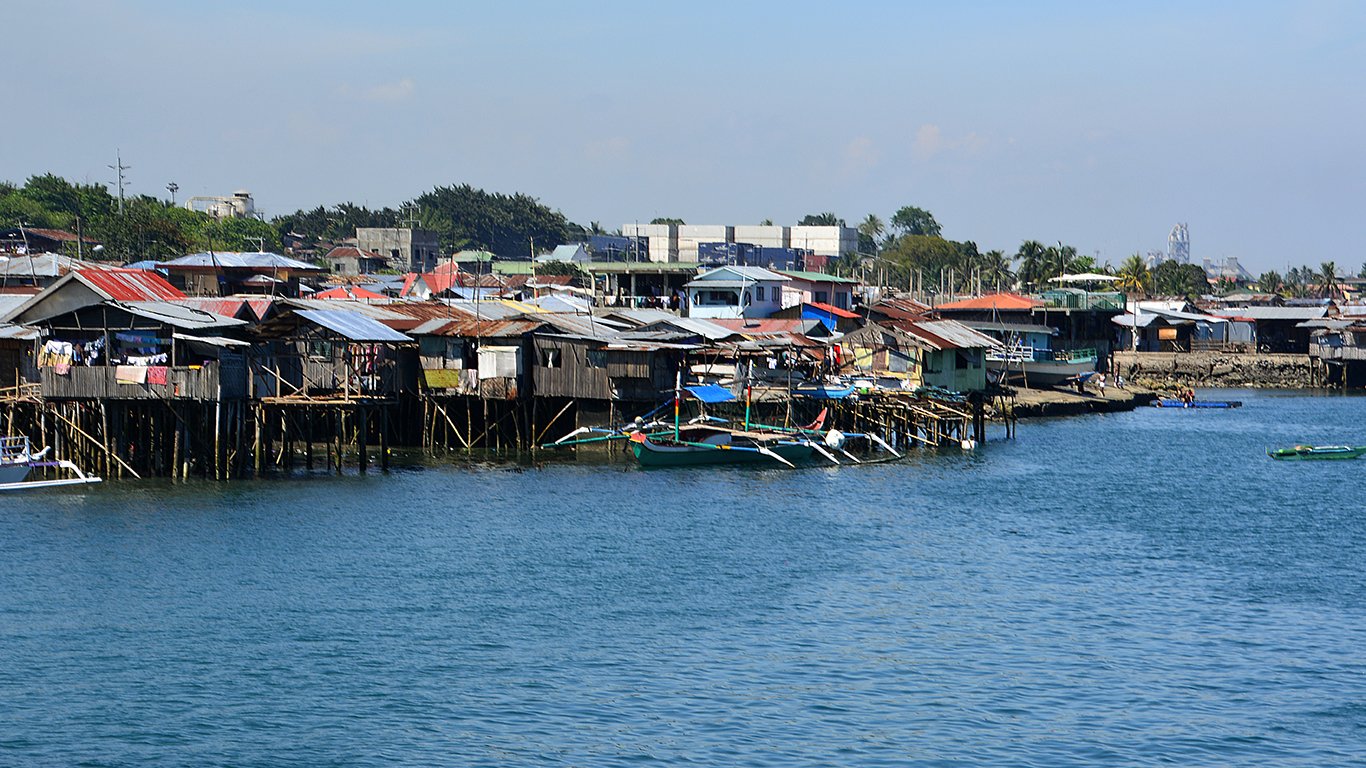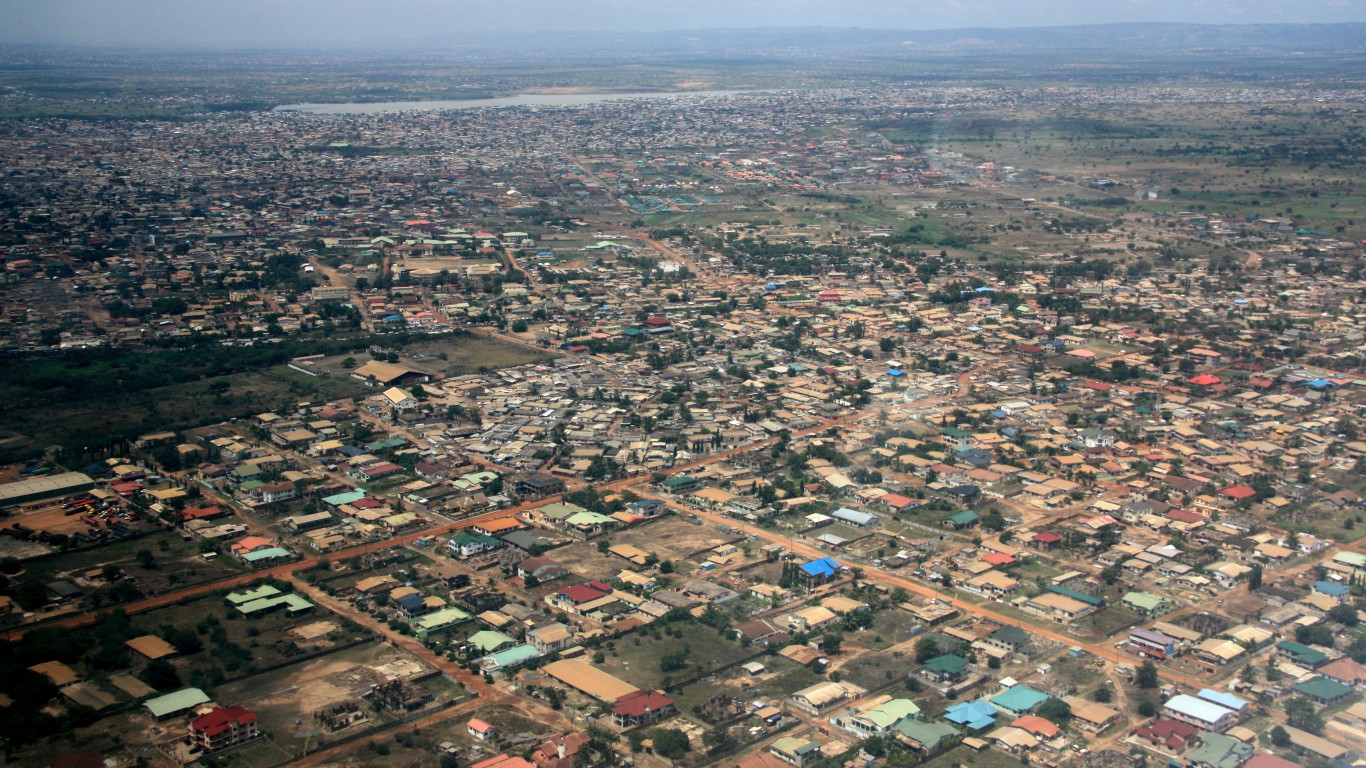
20. Republic of the Congo
> Total CO2 emissions change 2010-2020: 58.87%
> Total CO2 emissions change 1971-2020: 354.89% — #52 largest increase of 145 countries
> Total CO2 emissions 2020 in million tons: 3.12 — #134 largest of 145 countries
> CO2 emissions per capita change 2010-2019: 58.28% — #14 largest increase of 144 countries
> Total GHG emissions change 2010-2019: 15.48% — #42 largest increase of 88 countries
The production of oil is a pillar of this central African nation’s economy. UUnfortunately, its total CO2 emissions soared more than 354% from 1971 to 2020.

19. Georgia
> Total CO2 emissions change 2010-2020: 60.57%
> Total CO2 emissions change 1971-2020: -2.64% — #29 largest decline of 145 countries
> Total CO2 emissions 2020 in million tons: 9.98 — #107 largest of 145 countries
> CO2 emissions per capita change 2010-2019: 89.84% — #11 largest increase of 144 countries
> Total GHG emissions change 2010-2019: No data
The nation of Georgia is located on the eastern coast of the Black Sea between Russia and Turkey. The country’s energy sector accounts for 71% of emissions. The government provides subsidies for the electricity and gas segments. Georgia’s economy is growing and is considered among the freest in the world, according to the Heritage Foundation’s 2021 Index of Economic Freedom.

18. Sri Lanka
> Total CO2 emissions change 2010-2020: 61.72%
> Total CO2 emissions change 1971-2020: 560.92% — #45 largest increase of 145 countries
> Total CO2 emissions 2020 in million tons: 21.12 — #85 largest of 145 countries
> CO2 emissions per capita change 2010-2019: 70.10% — #12 largest increase of 144 countries
> Total GHG emissions change 2010-2019: No data
This Asian island nation of 21 million people posted the 12th-largest increase in CO2 emissions per capita from 2010 to 2019, or 70%. Based on World Health Organization guidelines, the air quality in Sri Lanka is moderately unsafe. Vehicle emissions, waste burning, and petroleum refining are among the causes of unsafe air quality.

17. Philippines
> Total CO2 emissions change 2010-2020: 63.97%
> Total CO2 emissions change 1971-2020: 393.68% — #49 largest increase of 145 countries
> Total CO2 emissions 2020 in million tons: 136.12 — #35 largest of 145 countries
> CO2 emissions per capita change 2010-2019: 55.21% — #15 largest increase of 144 countries
> Total GHG emissions change 2010-2019: 75.99% — #5 largest increase of 88 countries
The economy of the Asian archipelago increased on average more than 6% from 2015 to 2019 and is one of the most robust economies in Asia. The Philippines also posted the fifth-largest increase in total greenhouse-gas emissions â almost 76% â from 2010 to 2019.

16. Ghana
> Total CO2 emissions change 2010-2020: 64.80%
> Total CO2 emissions change 1971-2020: 598.28% — #41 largest increase of 145 countries
> Total CO2 emissions 2020 in million tons: 16.01 — #93 largest of 145 countries
> CO2 emissions per capita change 2010-2019: 43.17% — #20 largest increase of 144 countries
> Total GHG emissions change 2010-2019: 97.09% — #4 largest increase of 88 countries
Most of this African country’s greenhouse-gas emissions come from land-use change and forestry. Ghana aims to cut emissions 15% by 2030. It had the fourth-largest increase of total emissions from 2010 to 2019, at 97%.

 24/7 Tempo
24/7 Tempo




